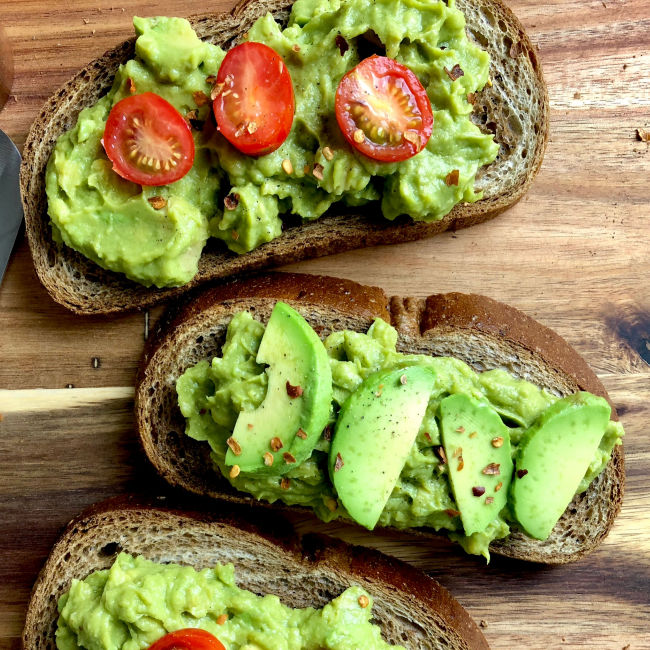
1. Healthy Fat: Avocado
Avocado is rich in monounsaturated fats, which help lower levels of LDL (bad) cholesterol while maintaining and even raising HDL (good) cholesterol. They can also help keep you full, reducing the temptation to snack on unhealthy foods later.
"Avocados are rich in monounsaturated fat, which offers a lot of cardiovascular and digestive benefits while losing weight," Catherine Gervacio, registered dietician and nutrition writer for Living.Fit, tells us. Luckily, it’s also packed with important nutrients. “It is rich in vitamins E, C, and A to act as antioxidants to keep the body healthy,” she goes on. And it can even help boost your metabolism: "The vitamin C content of avocados can fight off free radicals that can slow down the metabolic rate." Sign us up!
2. Healthy Fat: Almonds
Similar to avocados, almonds are also rich in monounsaturated fats. Not only will this lower LDL cholesterol, but it can also reduce the risk of heart disease.
Gervacio says almonds are one of the best choices when it comes to a food that’s both nutritious and satisfying. "They are considered a plant-based protein source to keep losing weight without worrying about the health consequences of excessive cholesterol intake," she points out. "Almonds are rich in fiber for better digestion. They can also prolong satiety to prevent overeating during meals."
3. Unhealthy Fat: Coconut Oil
Coconut oil is deemed a healthy food among consumers, but it’s important to be aware of its fat content! Used in everything from cooking to baking, coconut oil’s overall saturated fat content can raise cholesterol levels and potentially lead to insulin resistance.
This type of oil is calorie-dense; experts suggest consuming it in moderation as the extra calories can accumulate over time.
"Coconut oil is actually about 90% saturated fat—even higher than butter! This type of fat has been shown to raise LDL cholesterol, which can increase the risk of heart disease and insulin resistance. For women over 50, who are already at a higher risk for Type 2 diabetes, consuming too much saturated fat can further affect insulin sensitivity and contribute to blood sugar spikes," says Veronica Rouse, a registered dietitian and expert with WowMD.
"While coconut oil can be used occasionally, it’s important to focus more on heart-healthy fats like olive oil or avocado oil, which promote better blood sugar control and overall cardiovascular health."


